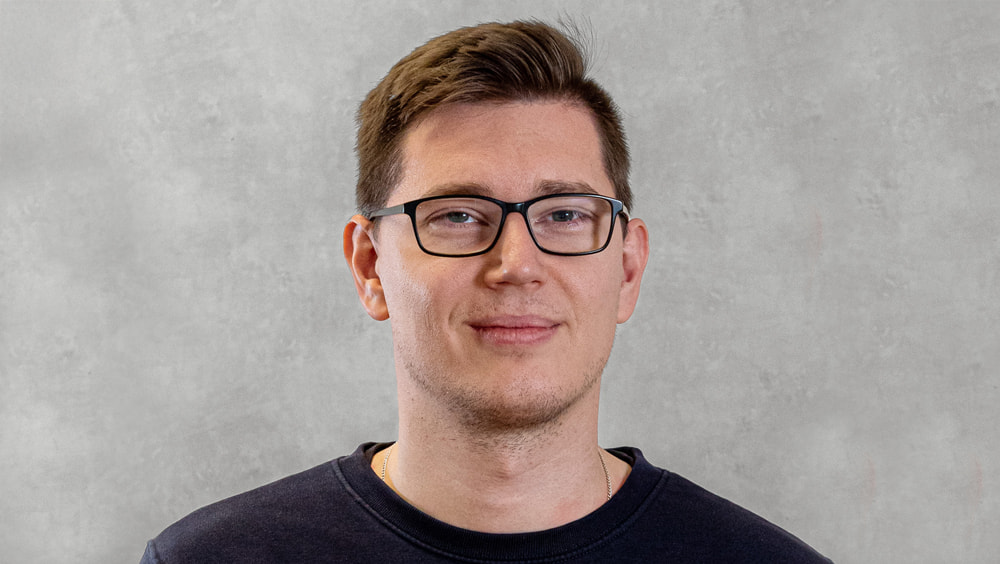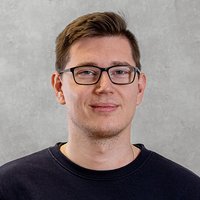SKZ training in an interview
The SKZ Plastics Centre is regarded in the industry as the leading point of contact for all matters relating to testing, research, certification and further training in the field of plastics technology. The Würzburg-based institute is also involved in academic education – by supervising theses, giving lectures and offering internships at the University of Würzburg and the Würzburg University of Applied Sciences – and also trains its own specialists.

Stefan Zuljevic, instructor at SKZ. (Photo: Luca Hoffmannbeck, SKZ)
Plastics Centre SKZ offers apprenticeships in the plastics industry
Stefan Zuljevic from the Compounding and Extrusion department talks about training as a plastics technologist in an interview.
What training did you do and why at SKZ?
Stefan Zuljevic: "I decided to train as a plastics technologist – at that time it was still called process mechanic. I wasn't actually familiar with SKZ before I started looking for training positions. However, I was immediately impressed by the interview: I was given a tour straight away, and the large technical facilities, extensive machinery and diverse processing methods at SKZ quickly made me realise how versatile the profession is and that SKZ offers very comprehensive and practical training. The above-average remuneration was of course also a good argument.
At the time, I also thought about studying mechanical engineering – but looking back, this decision was one of the best I ever made. I always had the opportunity to develop myself further here, and thanks to its many research projects, the SKZ offers the chance to constantly work innovatively on new topics and challenges."
What attracted you to training in the plastics sector?
Stefan Zuljevic: "It has to be said that plastics used to have a much better image back then – unfortunately, this has suffered somewhat in the general perception due to various factors. For me, however, it was clear early on that plastics are definitely the material of the future. They were and are being used more and more, so the industry seemed extremely future-proof to me. Today, plastics are an integral part of our everyday lives.
Take the automotive industry, for example: in the past – my first car was a Golf II – many parts were still made of sheet metal and metal. Today, plastics are an essential component of almost all vehicles. This development is progressing steadily, and the areas of application are no longer limited to lightweight construction. Plastics also play a central role in medical technology and sustainable energy production.
Right from the start, I was particularly fascinated by the versatility of the processes – and here, too, new developments are constantly emerging. With additive manufacturing, or 3D printing as it is known outside the industry, several exciting technologies have been added."
You are now training others yourself. What fascinates you about this?
Stefan Zuljevic: "What I enjoy most is showing young people that a technical profession can be great – especially in the plastics sector. It fulfils me to be able to offer our trainees a sound and at the same time diverse education. The sheer number of processes in our technical centre alone makes the trainees true specialists in a wide variety of manufacturing processes.
At SKZ, they can even learn about all the testing procedures – in the end, they are true all-rounders. Our extensive range of further training courses for industry also benefits the trainees. This gives them a comprehensive insight into current, practical applications and problems. There is hardly a better way to prepare for a career in industry.
In addition, we maintain and repair our equipment ourselves. This allows me to impart a great deal of technical and mechanical know-how to the trainees. In research, we sometimes take machines apart completely, optimise them or further develop processes. Especially when it comes to these innovative topics, I am always learning new things – and my trainees are of course right in the middle of it all."
Are there currently many applications?
Stefan Zuljevic: ‘Unfortunately, I have to say that we could do with a few more. The image of the plastics industry certainly plays a role in the choice of training. But we are actively working to counteract this. We now attend numerous career fairs in the region, where we present our training programmes. We offer training every year – and applicants are still very welcome.’


